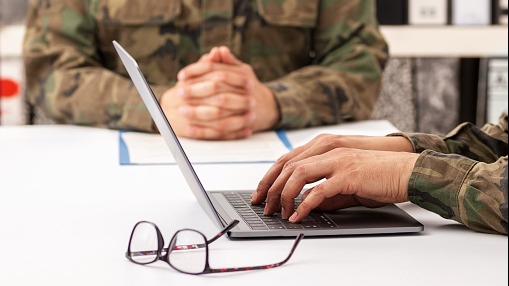
The Hidden Challenges of Health Self-Advocacy for Service Members
Imagine being a young service member, suddenly thrown into the fast-paced dynamics of military life. Keeping up with training, teamwork, and operational readiness takes priority. But what happens when an injury strikes, disrupting that balance? The instinct to keep pushing forward often overshadows the need to address health concerns, leading to a dangerous cycle of neglect.
Unpacking the Stigma Around Seeking Help
The stigma attached to seeking medical help remains a formidable barrier for many service members. Reports indicate that approximately 60% of military personnel experiencing mental health issues do not reach out for help, largely due to fears of being perceived as 'weak' or 'broken.' This mindset persists despite the clearer understanding that self-care is critical for effective military service.
Cultural Norms That Inhibit Expression
Within military culture, qualities like resilience and toughness are not merely encouraged; they are essential to survival and success in combat. However, this pervasive 'suck it up' mentality can dissuade service members from voicing health concerns or acknowledging pain. The results can be detrimental: injuries downplayed, mental health issues unaddressed, and permanently altered service careers.
Fears of Career Repercussions
Yet another layer complicating health advocacy is the deeply ingrained fear of professional consequences associated with medical diagnoses. Often, service members worry that even a benign entry in their medical records can hinder opportunities for promotion or deployment. This fear not only affects their willingness to seek help but compromises their health, leading to potentially long-term effects.
Systemic Barriers Within Military Healthcare
Military healthcare facilities, often burdened by overstaffing and high patient volumes, can further complicate self-advocacy efforts. With limited appointment times and rushed consultations, service members may feel their concerns are neither heard nor validated. Such institutional barriers can leave individuals feeling powerless and reluctant to revisit their healthcare needs.
Building Confidence in Self-Advocacy Skills
To dismantle these barriers, it is vital to equip service members with the tools needed for self-advocacy. Training programs can educate on how to effectively communicate with healthcare providers, emphasizing their rights as patients. Moreover, initiatives that normalize help-seeking behaviors can help reshape military culture and mitigate stigma.
Encouraging a Shift in Military Culture
Leadership plays a crucial role in creating an environment conducive to open discussions about health. By encouraging a culture where vulnerability is seen as strength, command can significantly influence morale and willingness to seek care. A shift in mindset is essential not only for individual well-being but also for enhancing unit cohesion and operational effectiveness.
By addressing the cultural stigma surrounding health care, military leadership can begin to change the narrative. Legislation aimed at protecting confidentiality in medical matters will fortify service members' confidence to seek help without the fear of career repercussions. Implementing changes to appointment access, where service members can take the time they need to address their health comprehensively, will contribute to their long-term well-being.
Ultimately, the imperative to prioritize health begins at the very start of a service member's career. Their physical and mental well-being is as critical as maintaining their equipment or readiness levels. Similar to ensuring a weapon functions flawlessly, taking care of oneself must be ingrained as part of military training and ethos.
It is high time that the military community recognizes the importance of advocating for health, ensuring service members have both the responsibility and the support necessary to pursue their wellness. Just as we honor acts of valor on the battlefield, we must also honor the courage it takes to advocate for personal health care.
 Add Row
Add Row  Add
Add 




Write A Comment